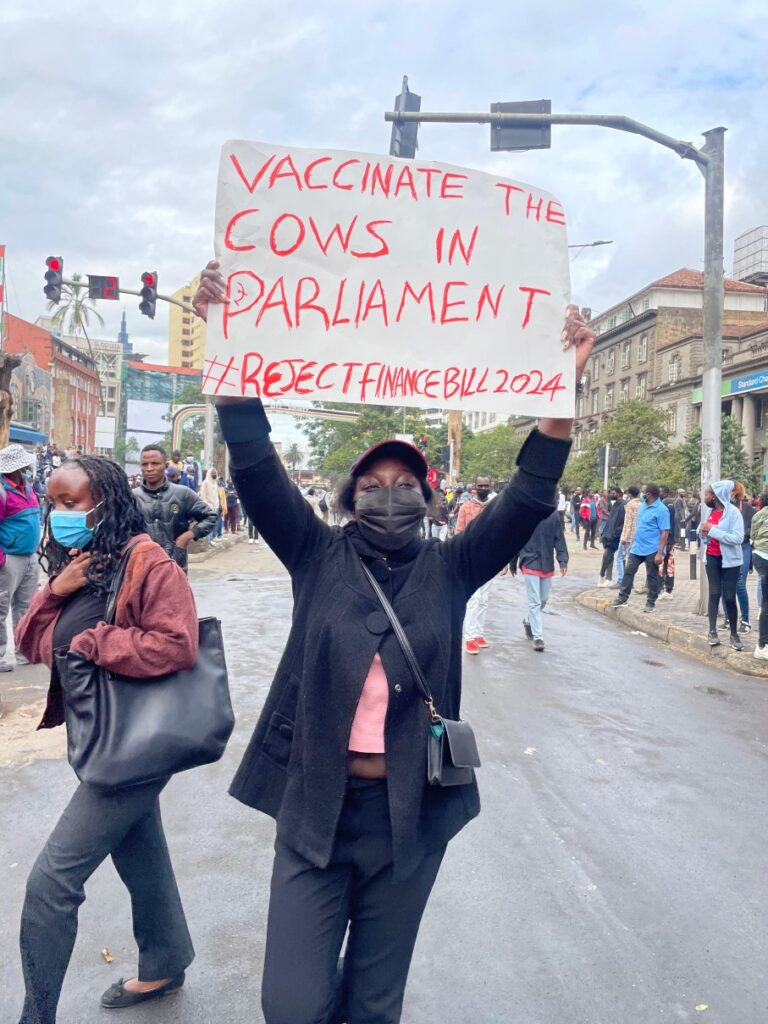Kenya’s government has been criticized for excessive spending on spousal offices. Therefore, the debate on eradicating the spousal office expenditure of the first lady in Kenya has gained traction in recent years. This is majorly fueled by concerns over government spending and calls for greater transparency and accountability on the same. Recent budget allocations in the Finance Bill 2024 have highlighted the need for fiscal responsibility and reevaluation of priorities. This is depicted by a report tabled in parliament by the cabinet secretary for national treasury Njuguna Ndung’u. It showed that the budget allocation for the First Lady Rachel Ruto’s office will be increased by 17.3% to 696.6 million from 539.9 million in the new financial year. Moreover, It is expected that a big portion of the increment will go towards the payment of salaries.

The office of the first lady in Kenya, similar to its counterparts in many other countries often engage in charitable and social activities. In Kenya, the First lady is involved in environment and climate action, financial inclusion and women empowerment. Moreover, she is also the founder and patron of Mama Doing Good and a champion of faith diplomacy, mental health and wellness. These activities are plausible and undeniably valuable to the society. However, the expenditures associated with maintaining this office- covering staff salaries, travel expenses, and other operational costs- have come under scrutiny. Critics argue that these funds could be better utilized directly within the government ministries or public services that have more direct impact on citizen’s lives.
One of the primary arguments for eradicating the expenditure on the First Lady’s office is the potential for cost savings. Kenya like many other developing nations, faces significant fiscal challenges. Therefore, redirecting funds from what some perceive as a “ceremonial office” to essential services such as healthcare, education and infrastructure could lead to more tangible benefits for the public. For instance these funds could be invested in maternal health programs, ending period poverty, improving our education system and expanding access to clean water.
Moreover, the existence of the Office of the First Lady raises questions about the principle of accountability. The First Lady is not an elected official, yet her office receives public funds. This arrangement often blurs the lines of accountability and transparency, as the public has limited oversight over how these funds are used. Arguably, public money should be subject to stringent scrutiny and should be spent on entities directly answerable to the electorate.
Another point of contention is the perceived redundancy of the Office of the first lady. This is because many initiatives spearheaded by that office overlap with the mandates of the existing government ministries and agencies. For example health and education could be more effectively managed by the ministry of health and ministry of education respectively. This overlap can lead to inefficiencies and duplication of efforts, diluting the impact of government interventions.
On the other hand, proponents of maintaining the expenditure on the Office of the First Lady argue that it serves a practical and symbolic purpose. It is argued that the First Lady often brings visibility and attention to critical social issues, leveraging her position to advocate for change. That the soft power and influence wielded by the First Lady can complement the hard power of government institutions, creating a holistic approach to addressing societal challenges. Additionally, the charitable activities of the First Lady can mobilize private sector support and public goodwill, contributing resources that might not be accessible through government channels alone.
In conclusion, the debate over eradicating spousal office expenditure of the First Lady in Kenya is a nuanced issue that balances cost-saving with symbolic value and practical outcomes. While there are valuable arguments and insights from both sides, the crux of the matter lies in evaluating the efficacy and necessity of the office in its current form. A thorough assessment, possibly coupled with reforms to enhance transparency and accountability could pave way for a more effective use of public funds. This will ensure that every shilling spent yields maximum benefit to the Kenyan people.
About the Author
Darryl Isabel
A law student currently pursuing a degree at Kabarak university. Serving as the executive secretary for LSAK Rift Valley region 2024. She is also a certified mediator and a firm believer in the principles of justice and human rights. Her long term goal is to influence policy and legislative changes that bring about sustainable development.
A great piece @ Darryl
Thank you for reading!Share widely.